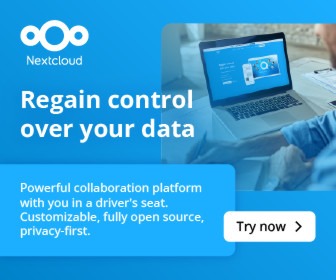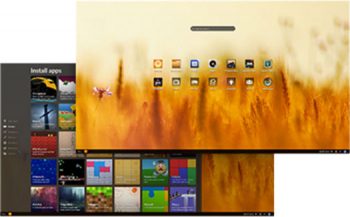Recently we’ve written on FOSS Force about the progress that Ken Starks’ front end for MaryTTS, temporarily named “SpeechLess,” has made in being released as beta software. When we last looked, Ken had assembled a three-man team to create a GUI for the speech program and, to quote him from his item, “it has come along nicely.”
 Although the demo is web-based, the team has been able to construct the software so the entire thing is local, meaning little or no latency between hitting enter and having the text replicated to speech.
Although the demo is web-based, the team has been able to construct the software so the entire thing is local, meaning little or no latency between hitting enter and having the text replicated to speech.
Chaffey College student Calvin Huang has set his sights a little higher in the medical software realm, specifically on sequencing DNA in an open-source manner.
I met Calvin at the SoCal Maker Con in Pomona, Calif. last weekend, where among the robots, drones, and pletora of other cool stuff on display, and demonstrations by hackers and vendors in the starting blocks of an advancing maker movement, Calvin approached me in the Open Source Initiative booth with a pamphlet and a path that he and others at the Chaffey Computer Science Club are currently taking.
Specifically, the Open Sequencer Project is an attempt to design and build an automated DNA sequencer costing under $1,000. But it’s more: The goal is to introduce students to the world of genetics by providing access to capabilities normally found only in well-funded commercial and academic labs, and to achieve this using open source and open design methods.
After discussing it last week, followed by an exchange of emails, Huang said that the group is now “trying to get everyone familiarized with the Raspberry Pi and Arduino.”
“Once we have a little more of the hardware side figured out,” he added, “we’ll probably have enough code and documentation to set up a public repository.”
Heady stuff from the small college in Rancho Cucamonga.
There is, of course, a Kickstarter campaign involved and sponsors are sought, so for more information about both, you can write to the project at info@opensequencer.com.
Meanwhile, up in the Pacific Northwest, Benjamin Kerensa has been marshaling the programming troops around user-centered free and open source apps for diabetes management and research called Glucosio.
Out in the wide world since October for Android at the Google Play Store, the most recent version of the software is written to be a more well-rounded application, as opposed to just another glucose tracking application. Glucosio allows users connect to other services like Think, Google Fit, MyFitness Pal and others, to get a more complete view of their diabetes, including providing diabetes tips.
So in speech, DNA, and diabetes research, the FOSS forces are well represented in the health arena. Keep up the great work, guys and gals.






You may check health.gnu.org and lims.gnu.orgm the community around that currently meets in Buenos Aires tuba2015.tryton.org